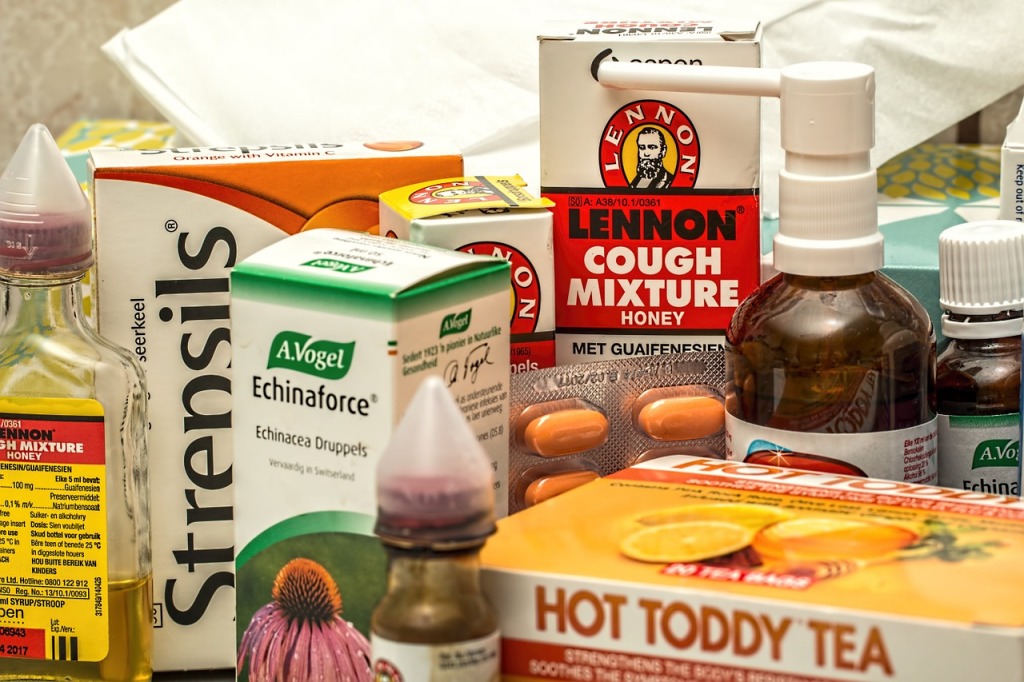Leave of Absence
This week, for the first time since going freelance, I’ve been ill. Actually, properly, basically asleep or at best conscious and horizontal ill. It only involved two days off, in the end: one not to move at all, and one to manage a rehearsal at home, some emails, and a lot of resting in between. Now I’m just one of the ranks of snuffling Londoners with not enough tissues. Happy end of January.
But being ill as a freelancer is a potentially terrifying proposition. If you are without the security of a salary that is paid month in, month out, doctors’ notes or no, the idea of time off work can have serious professional and financial ramifications. So here are a few suggestions about how to deal with illness in freelancing, and things you can do to take away the fear that a failure of health could have repercussions for your career.

1. Nothing you do is worth being dead for. If you are ill, working through it until you are hospitalised or worse is never the answer. It can seem tempting to keep going for all sorts of reasons: not letting people down, not losing income, not giving your would-be employer the impression that you’re a weakling… and so on and so forth. But, bottom line, if you fight on when you know your body needs you to stop, you will make yourself iller in the long run, and need longer to recover… and round and round we go. Are you really concerned, beyond anything, that your headstone reads “Here lies Bob, dead at 36 but never cancelled a meeting in his life”? No? Thought not.
2. Know your entitlements for every job. If the work you’re doing is solely one-off supplier work or cash in hand, it’s probably the case that there’s no sick pay contingency. If you are in regular employment, contracted and being remunerated via PAYE, there might be some money available even if you’re not well enough to work. Check the contract, if they gave you one. If they didn’t, or if you’ve lost it, ask. If it’s hourly-paid or cash in hand, ask. If the worst they can say is “no, silly, didn’t you read the Ts and Cs?” then you’ve lost nothing. If you don’t ask and there was money available, you’ll kick yourself later. Not too hard, though. Not so you need crutches, or anything.
3. Make contingency plans yourself. Among the most brilliantly sensible of my freelancing friends is a singer who runs her own sick pay savings pot. The principle is simple: each month, stick a little bit of cash to one side. It doesn’t have to be much, but just something (for example: work out, on average, what you earn per day and make it a day or two’s worth of money at that rate). Let it grow quietly. Check up on it now and again. If you find that you are unable to work, then bang: break glass to access emergency sick pay. If you pass enough months in miraculous health that the pot gets to be larger than it needs to, then look at you! You have the constitution of an ox, and spare money to play with. Go on holiday, have a top notch meal, buy a PlayStation… whatever. Enjoy the fruits of your excellent financial planning.
4. Savings are there for a rainy day – so if it’s pouring, spend them. This one has taken me a very long time to get my head around. For years and years, I have had an ISA into which I have scraped every available penny, birthday cheque, extra bonus, and so on. When you are still at school and saving, Your Savings, in whatever form (or quantity) they take, seem somehow reserved for The Stuff of Adulthood: car, house, dog, and so on. Well, here you are in adulthood, and whether you have managed to obtain the car, house and dog, outright rejected the idea of all three, or are still determined to have them in the future, that money is yours. If you continue to save indefinitely for an abstract aspiration, you will end up with more money (though not much more, given current interest rates)… but you might be so busy planning to look after Future You that you’ve forgotten about Present You. If work can’t help you, and you run out of your contingency pot, use your savings. Get better. Everything else will follow. Let’s not have to adjust the tombstone to mention that, in addition to your excellent punctuality, you were also very committed to never touching your savings for anything other than property purchase and Caribbean cruises. You’re saving for YOU, by the way. Just in case you forgot.
 The bottom line is: your health is one of your most important resources, and it is irreplaceable. Your work, for all you might adore it, can be changed. If your employer is being an ass about your illness, you need a new employer, not a Lazarus-like urge to raise yourself from death’s door to carry on working for them. If you are self-employed, you have already mastered an impressive range of skills to get there: planning and organisation of your time and income, the ability to look after your own business accounts, communication and self-promotion, and the skills of your chosen line(s) of work. Don’t forget that. If you are ill for such a long time that contingency, savings and income streams dry up, there are always places you can turn. Ask your union or professional body. Speak to the Citizens Advice Bureau. If you are working in music – any kind of music – Help Musicians UK could offer you money for both emergency medical assistance and longer-term care.
The bottom line is: your health is one of your most important resources, and it is irreplaceable. Your work, for all you might adore it, can be changed. If your employer is being an ass about your illness, you need a new employer, not a Lazarus-like urge to raise yourself from death’s door to carry on working for them. If you are self-employed, you have already mastered an impressive range of skills to get there: planning and organisation of your time and income, the ability to look after your own business accounts, communication and self-promotion, and the skills of your chosen line(s) of work. Don’t forget that. If you are ill for such a long time that contingency, savings and income streams dry up, there are always places you can turn. Ask your union or professional body. Speak to the Citizens Advice Bureau. If you are working in music – any kind of music – Help Musicians UK could offer you money for both emergency medical assistance and longer-term care.
Last but not least, give yourself all the time you need to get really well. That’s the hardest part, I find – to not assume that because you can walk, you should now get back to work at once. Be your own boss in the best possible way. Imagine an employee came to you in the same sorry state (sneezing, wheezing, fainting, whatever it might be) that you now find yourself in. What would you do? Tell them to stop whining, or send them home? Well, you are your own employee. Rule one of a happy business: look after your workforce.

